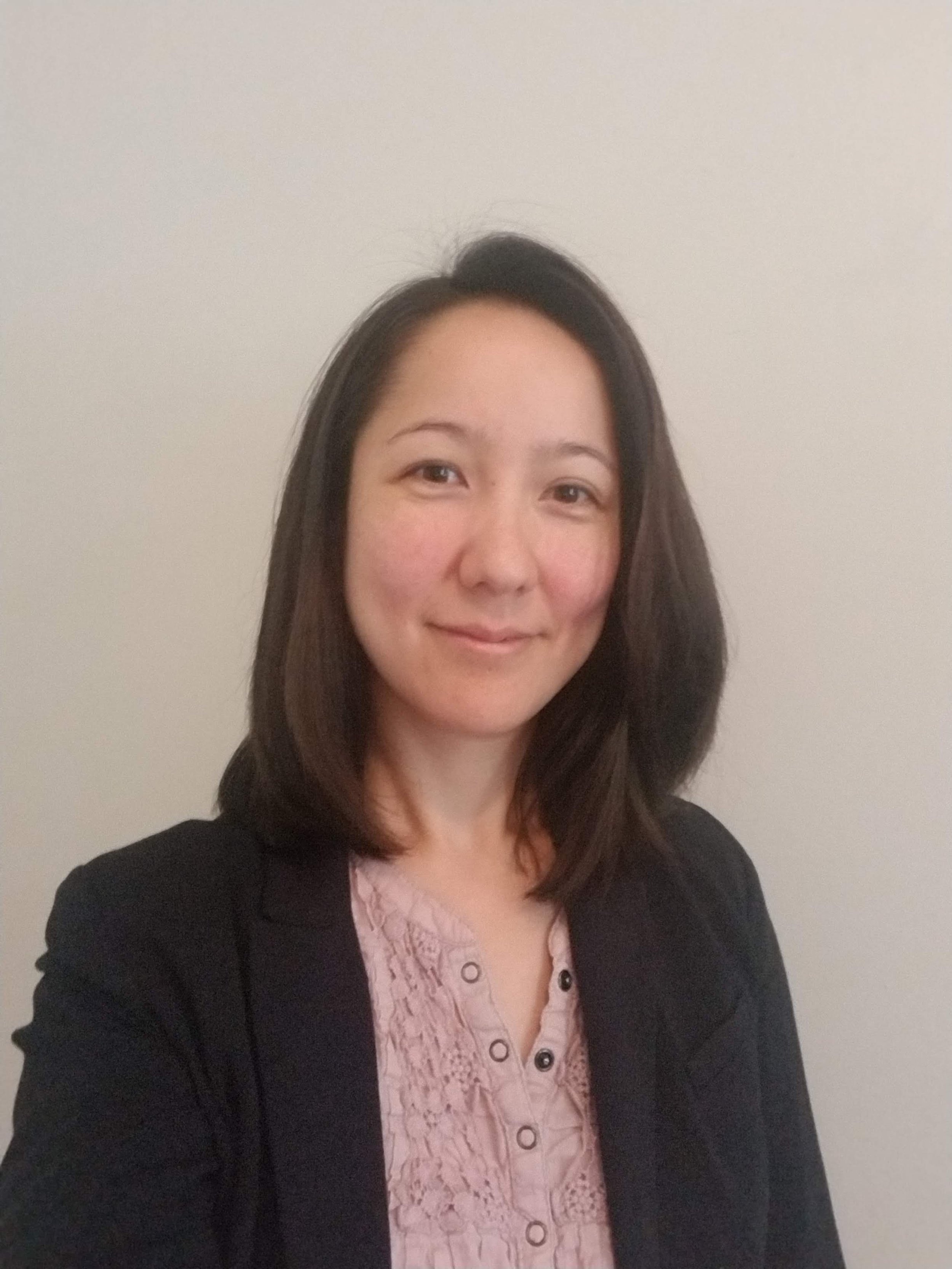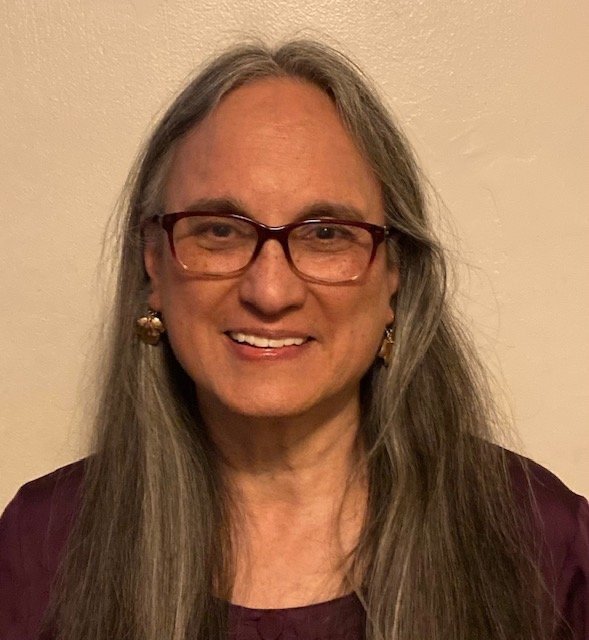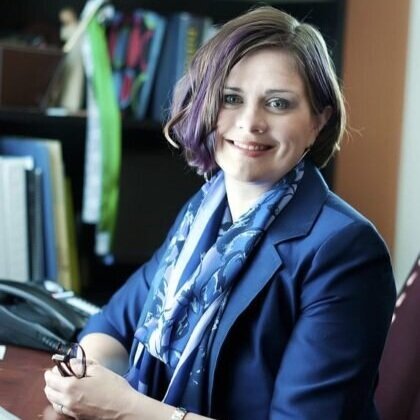Beacon Adopts 8th Principle, Committing to the Dismantling of Racism
The 8th Principle
Beacon Unitarian Universalist Congregation adopted an 8th Principle at our annual meeting on Sunday, June 28, 2020 - committing our members to work to dismantle racism.
The 8th Principle affirms and promotes “journeying toward spiritual wholeness by working to build a diverse multicultural Beloved Community by our actions that accountably dismantle racism and other oppression in ourselves and our institutions.”
The Unitarian Universalist Association (UUA), the umbrella association of UU congregations in the United States, adopted the existing Seven Principles in 1985 as a faith movement covenant. When approved by the UUA, the 8th Principle will join the other statements of UU shared values, which are seen as dynamic and subject to change over the years.
Beacon minister Rev. Dr. Robin Tanner said that “by joining with other leading UU congregations across the country, we hope to convince our denomination to add these 8th Principle pledges to our core set of practices. This Principle goes to the heart of our mission—to be radically inclusive, to feed the human spirit and heal the world.”
Beacon has been actively involved in racial justice for at least 13 years. In 2007-2008, a group of Beacon members participated in a year-long UU anti-racism curriculum, “Building the World We Dream About.” Shortly thereafter, the Racial Justice Task Force was formed, with an active commitment to affordable housing in Summit. In 2010, the congregation began an annual celebration of Dr. Martin Luther King Jr.’s birthday with readings from his speeches, in collaboration with clergy and members of Pilgrim Baptist Church in Summit.
In 2013, Beacon brought in an anti-racism facilitator training program developed and led by Dr. Mark Hicks of Meadville-Lombard Theological Seminary. More than a dozen members participated. Afterward, these trained facilitators offered the Beloved Conversations curriculum to the congregation for the next several years.
In 2014, horrified by the deaths of Mike Brown and too many other Black men and women at the hands of police, a reconfigured Racial Justice Team crafted a congregational statement to affirm that Black Lives Matter. In the Spring of 2016, the Congregation voted unanimously to take this stand. The statement includes a commitment to ongoing education and to taking actions to address structural racism.
In September 2016, Beacon—in partnership with Fountain Baptist Church—raised Black Lives Matter banners on our respective congregational buildings. That day, more than 400 members and friends marched through Summit, ending at Beacon for a shared celebration.
Since then, the team has worked to engage Beacon members and the larger community with initiatives of anti-racism education and action. Beacon was one of the leaders when the Summit Interfaith Council’s Anti-Racism Committee developed a series of interracial, facilitated Dialogue Circles on Race, open to all members of the Summit community. More than 400 residents of the Summit area have participated to date in the Dialogues, aimed at promoting honest conversations about what is often an uncomfortable topic.
In 2019, the Racial Justice Team developed a process for taking the pulse of the Beacon community with regard to our individual journeys toward spiritual wholeness based in anti-racism. Members of the team are inviting Beacon community members into dialogue about the meaning of “radical inclusion,” a key plank in Beacon’s mission, as well as the steps we can take to dismantle racism and become a Beloved Community.
The movement for an 8th Principle developed in response to issues related to hiring practices within the UUA that came to light in 2017. As a result, Black Lives of Unitarian Universalism (BLUU) and Diverse and Revolutionary UU Multicultural Ministries (DRUMM) proposed an 8th Principle for adoption by the UUA to explicitly hold UUs accountable for addressing racism and other oppressions.
Beacon and other UU congregations, including the UU Church at Washington Crossing in Titusville, NJ, have taken the early proactive step of adopting the 8th Principle to show support for the proposal and as a direct expression of their commitment to its terms.
Beacon Unitarian Universalist Congregation in Summit, New Jersey, is a radically inclusive community whose mission is to feed the human spirit and heal the world. We are committed to being a beacon to the world by ministering to our 500+ members and friends, reaching out to those in need, partnering with allies and advocates for transformation, and joining our voices and actions in the chorus of justice. (return to top)
Updates
Adopting the 8th Principle was an important evolution for Beacon. For years, we have taken visible stands for racial justice – such as our Black Lives Matter (BLM) march in partnership with Fountain Baptist Church, the raising of our BLM banners on the front of our building and lobbying for equitable laws in Trenton. Adopting the 8th Principle is a step beyond that: it commits us to dismantling racism within our own walls. We were one of the first congregations nationwide to adopt this principle, stepping out as a committed leader in the anti-racism efforts of our larger faith.
As important as the congregational vote was, even more important is how we will live into this principle. This is a primary focus of the Board of Trustees. We are taking steps to identify oppressive systems, practices and attitudes within our congregation, hold ourselves accountable for those and work actively to dismantle them. As leaders, we seek to embody the 8th Principle’s stated values —in all of our work.
Here are some of the actions we have taken so far.
Widening the Circle Committee: The Board voted in April 2021 to charge a new committee, the Widening the Circle Committee, with identifying racist and oppressive systems within Beacon and leading the work to dismantle them. The committee’s name comes from the Widening the Circle of Concern report, published by the Unitarian Universalist Association’s Commission on Institutional Change. The Board appointed nine members, a diverse group, to this committee, and hired a consultant, Julica Hermann de la Fuente, an antiracism educator and trainer to guide committee’s work. Julica is Director of Liberation and Transformation Ministries at the First Universalist Church of Minneapolis.You can read the committee’s complete charge and view its membership.
The committee began its work by studying an antiracism rubric developed by Julica and other faith leaders that examines various aspects of congregational life and places them on a spectrum from a status quo congregation, rooted in white cultural hegemony; to a multiculturally aware congregation, passive in its antiracism, anti-oppression and multiculturalism; to an actively antiracist congregation. As a group, the committee found that Beacon, in most areas, is firmly rooted in the passive category. Our goal is to become a congregation eagerly and actively engaged in antiracism.
Next, the committee considered the results of a Listening Tour conceived by the former Racial Justice Task Force and embraced by the Board, which sought to gain insight into social and racial justice engagement at Beacon, to identify barriers and opportunities for greater engagement and to learn how people experience diversity and multiculturalism at Beacon. About 60 congregants, most of them actively engaged in some area of ministry or congregational life, participated in discussions conducted by Claudia Cohen and Suzanne Pallack. While much love and affection for Beacon was expressed in these discussions, we also heard stories of harm. We learned that we need to do a better job of responding to conflict. We heard that Beacon’s anti-racism work is alienating to some members.
From those discussions, the committee decided on three initial areas of focus:
Member care, including welcoming and pastoral care. Committee members Carol Conger Miller and Kimi Nakata are leading this work.
Faith formation, which moves us from an input/output model of religious education to a process of transformation. Faith formation asks, how does what I am learning change my life, my community and what is possible in the communities in which I participate? It is within this area that we aim to address the feelings of alienation surfaced in the Listening Tour – to demonstrate that our congregational commitment to antiracism will make us all stronger and that is deeply spiritual and meaningful work. Claudia Cohen, Susan Cramer and Sasha Torres are leading this effort.
Leadership. We aim to develop training and supports for both formal leaders (committee chairs, team leaders, and board members) as well as emerging leaders so that we all are in sync as we work to dismantle racism and move toward anti-racism. George Faison, Kendall Murano and Janet Roberts are leading this work.
Each team will be researching our current systems, looking for ways to dismantle racism and move us toward active antiracism. We welcome your ideas and encourage you to reach out to us at widencircle@summitbeacon.org.
We view this committee’s work as a long-haul commitment, not a sprint. Members will serve three-year terms. As some of the initial terms are shorter to achieve staggered membership, we will be advertising in the spring of each year for three new members to join the committee on July 1.
Other initiatives
Leadership training: Shortly after Beacon’s congregation voted to adopt the 8th Principle, about two dozen congregational leaders took part in a two-day training workshop led by the Racial Equity Institute. The workshop was a deep dive into structural racism in the United States, explaining the history, laws, policies, media campaigns and other systems that contribute to white supremacy. All new leaders at Beacon are now asked to complete this training. We will be offering this training again in the spring. Sign up here: forms.gle/wmYZfZe3QpPh2snV7.
Board of Trustees: Antiracism is one of the strategic focuses of the Board of Trustees for 2022. The Board is building regular time into its meetings for antiracism discussion and is examining its own processes to identify and eradicate white-supremacy thinking. The Board’s minutes offer summaries of these discussions and list some of the reading materials it has used. Because the Board is doing this work, it is becoming more intentional about considering how “whiteness” shows up in its decision-making and working to ensure that our actions reflect our goal to be an antiracist congregation.
Nominating Committee: The Nominating Committee is working on dismantling racism in our system for recruiting candidates for the Board of Trustees and intends to model an antiracist process for all leadership recruitment at Beacon. It is striving for a process that issues clear, open and inclusive invitations to service so that all who are interested can engage. It intends to make dismantling oppression an explicit expectation of all who serve and to offer leadership development and support so that people can take on new roles. The committee also strives to disrupt the assumption that white cultural norms will guide our committees and groups and that people must “fit” themselves to those norms. (return to top)
How to Get Involved
Sign up for anti-racism training.
Share your feedback with us.


